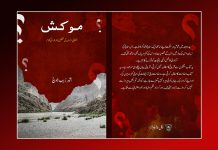Israel-Palestine Conflict
TBP Editorial
On October 7, the commander of the al-Qassam Brigades, Mohammad Zaif, announced Operation Storm Al-Aqsa against Israel. This massive attack on military bases has sent shockwaves throughout Israel and the world. Remarkably, this is the first large-scale war of its kind in over fifty years since Syria and Egypt’s attack on Israel during the Yom Kippur War in 1973.
The Al-Qassam Brigades’ assault has resulted in the loss of over 1,300 Israeli soldiers and civilians. In response, the Israeli army has launched a relentless series of airstrikes on the Gaza Strip, resulting in the deaths of over 2,000 individuals, a significant number of whom are children and women. The United Nations reports that 11 of its workers have been killed in Israeli airstrikes, and the Red Cross spokesperson has claimed that paramedics and hospitals are being targeted by the Israeli army, resulting in the deaths of several paramedics. Additionally, Journalists Without Borders reports the killing of nine Palestinian journalists.
Human Rights Watch has raised concerns about Israel’s use of white phosphorus bombs in Gaza and southern Lebanon. Israel has mobilized 360,000 infantry troops to encircle Gaza with armored vehicles, tanks, and artillery, imposing a blockade that prevents the delivery of essential items such as food, fuel, and water to the citizens.
Leaders of various Muslim countries and their political parties are expressing support for Palestine, but many are struggling to provide similar rights to the nations within their own borders. Turkey strongly opposes the bombings in Gaza while simultaneously conducting airstrikes against Kurdish groups seeking freedom.
Critics point out that those who remain silent on the ongoing crisis in Balochistan are protesting against the Palestinian tragedy. They criticize Israeli operations in Pakistan while advocating for resistance to Hamas. But at the same time they support military operations to suppress the resistance of neighboring Baloch communities.
It is evident that without a two-state solution, the Israel-Palestine conflict will persist. The world’s influential nations must take concrete steps to resolve this conflict, as peace in the Middle East cannot be achieved without addressing the Palestinian issue. Adhering to United Nations resolutions and international laws, it is possible to put an end to the bloodshed in both Palestine and Israel.




























